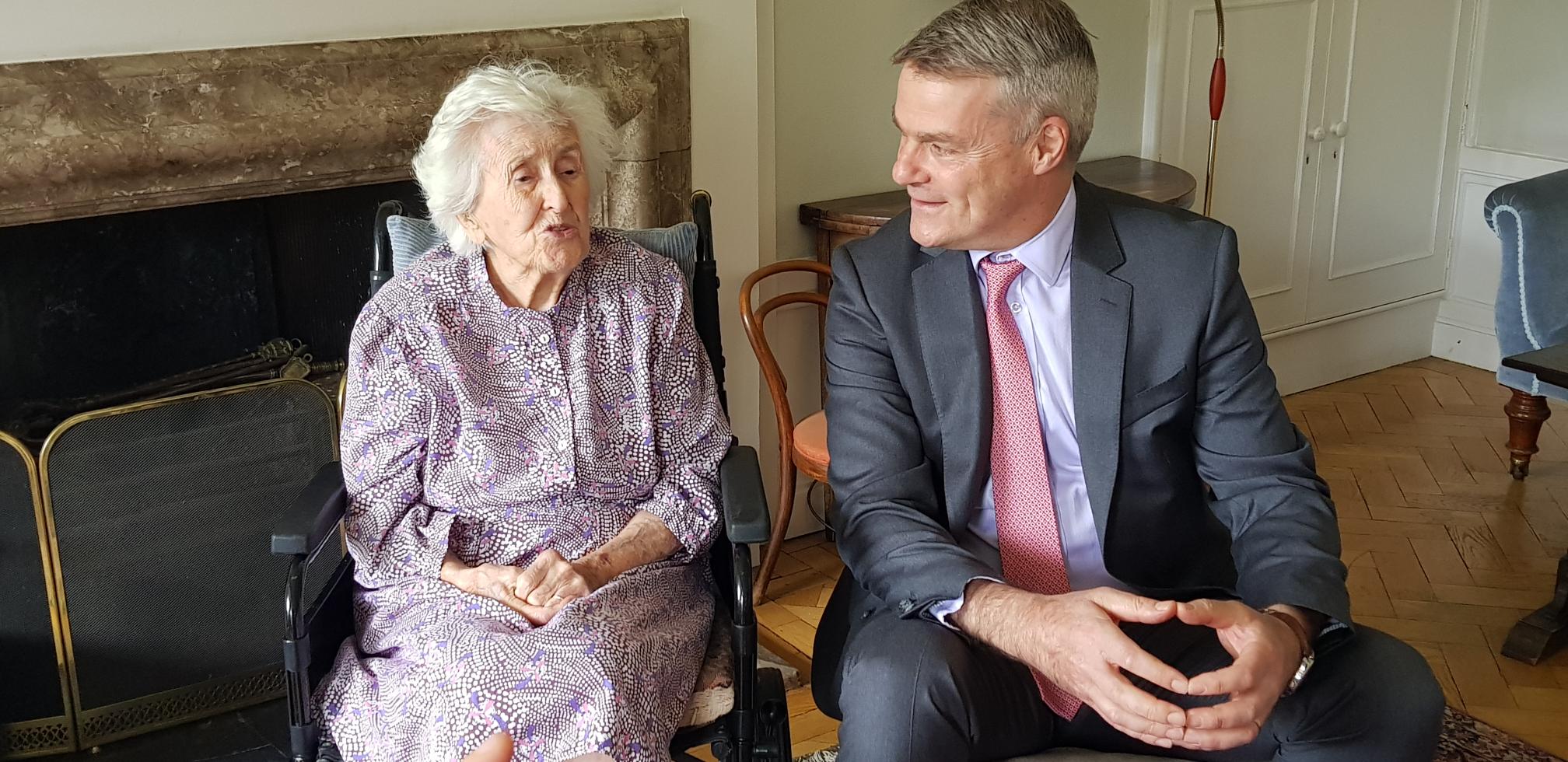
LMH had the honour of welcoming Elizabeth Kaser (Piggford, 1943, English) along with her daughter and granddaughter for a special visit on 31 May. At the age of 98, Elizabeth is (to our knowledge) LMH's last living Bletchley Park alumna.
During her visit, Elizabeth had the opportunity to meet with Principal Professor Stephen Blyth, engaging in a lively conversation about her experiences as a student at LMH and her contributions to the codebreaking efforts at Bletchley Park during World War II.
Elizabeth arrived at LMH to study English in 1943, having previously been a student at a convent school in Manchester. As the first pupil from her school to attend Oxford and only the second to attend university, Elizabeth joined LMH at a time when it was still rare for women to progress to higher education.
After studying at LMH for a year, during which time she was focused on making the most of the many exciting opportunities life in Oxford had to offer (and, as she admits, not so much on attending classes), Elizabeth left in 1944.
From LMH, she went to work at the Mathematics Institute, where she helped to decode war communications for Bletchley Park. Like other LMH alumnae who served at Bletchley, Elizabeth's education and proficiency in a second language made her an asset to the codebreaking efforts. Reflecting on that time, she described it as an exhilarating period in her life. Many nationally important activities had shifted from London to Oxford due to the war, and the atmosphere was exciting and intellectually stimulating. The onset of World War II had opened up new opportunities for women, and Elizabeth seized the chance to pursue a less traditional path.
Having signed the Official Secrets Act, Elizabeth worked in a clandestine role for the Secret Service, listening to and recording classified conversations. But Elizabeth's contributions to the war effort extended beyond this. She also travelled on small aircraft back and forth across the English Channel, delivering secret messages and intelligence between allies.
Following the war, Elizabeth worked for the World Health Organization in Geneva before eventually returning to Oxford with her young family. Reminiscing about her time at LMH, Elizabeth recalled the College's strict rules and curfew, which students cleverly circumvented by making use of the window to her ground-floor room, which conveniently backed onto University Parks, as a discreet entry point during late-night escapades.
It was a pleasure to welcome Elizabeth and her family back to LMH, and to hear her first-hand account of life in Oxford at such an important point in our history.
Only relatively recently have we been able to identify LMH alumnae who served at Bletchley Park, as they all signed the Official Secrets Act. A list of alumnae who are included in the Bletchley Park roll of honour can be found via the link below.